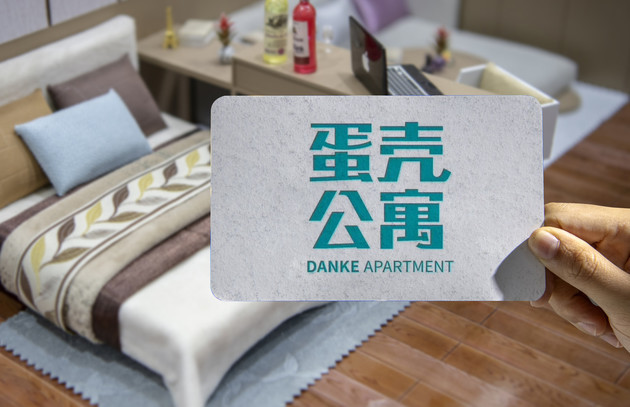Oct. 29 (NBD) -- Phoenix Tree Holdings Limited ("Phoenix Tree"), which runs Chinese long-term rental platform Danke Apartment, submitted the application for initial public offering (IPO) to the U.S. Securities and Exchange Commission on Monday, mulling to raise up to 100 million U.S. dollars.
The company plans to land on the New York Stock Exchange under the trading symbol of "DNK", and Citigroup, Credit Suisse and J.P. Morgan are the underwriters of the listing.
According to the prospectus, Danke Apartment has been the primary focus of Phoenix Tree since the company's inception in 2015.
Phoenix Tree runs rental houses under the name of Danke Apartment in 13 Chinese cities including Beijing, Shenzhen and Shanghai, and the number of the apartment units topped 406,746 as of September 30, 2019, with a 166-fold increase from 2,434 as of December 31, 2015.

Photo/Tuchong
Moreover, Danke Apartment ranked first among rental housing operators in terms of renewal rate for the period between 2018 and the first half of 2019, according to data firm iResearch. The renewal rate of Danke Apartment's residents for the first nine months of 2019 reached 52 percent.
Despite the dramatic growth, Phoenix Tree hasn't turned profitable so far. The company generated revenues of 5 billion yuan (708.04 million U.S. dollars) in the first 9 months of 2019, nearly double that for the entire year of 2018 which stood at 2.68 billion yuan. However, its net loss widened to 2.52 billion yuan in the January-September period of 2019, compared to 2018's 1.37 billion yuan.
National Business Daily noticed that Phoenix Tree's rival Q&K International Group is also on the U.S. IPO calendar. The latter filed with the SEC on October 7 to raise up to 100 million U.S. dollars.
Players in China's long-term apartment rental industry are struggling for survival as the sector has been undergoing a reshuffle since 2018. Around 25 platforms have gone bankrupt due to financial strain and poor management.
Behind the operation difficulty of the companies lies the wild expansion in the past three years, remarked Yang Xianling, founder of real estate study firm Kongbai Research Institute.
A number of new players such as real estate developers, brokers and entrepreneurs flocked into the rental market due to preferential policies of Chinese government and low entry threshold between 2016 and 2018, said Li Wenjie, senior vice president at online real estate platform Beike Zhaofang.
The market then faced the contradiction between surging supply and insufficient demand for rental houses, which led to malign competition among rental platforms, according to Yang.
Also, consulting firm CRIC Research noted the average profit margin of long-term rental firms is as low as 2-4 percent, and it takes at least 6 years for those companies to get their investment back.
Under such circumstances, going public becomes a way for top players to secure financial support and avoid becoming insolvent.
Li pointed out companies which seek to achieve healthy development need to maintain balance between prudent management and business expansion, and take satisfying the demands of tenants and providing quality rental services as their core strategies.
Email: gaohan@nbd.com.cn


 川公网安备 51019002001991号
川公网安备 51019002001991号





